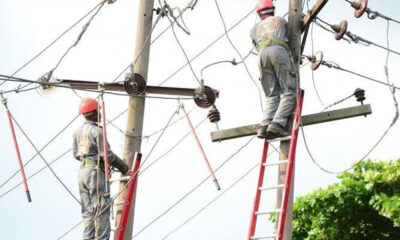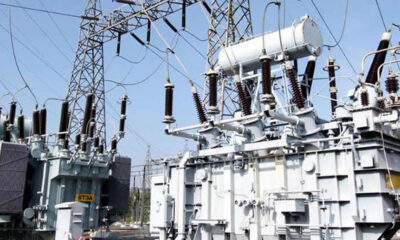News
Electricity workers threaten showdown, demand new tariff withdrawal
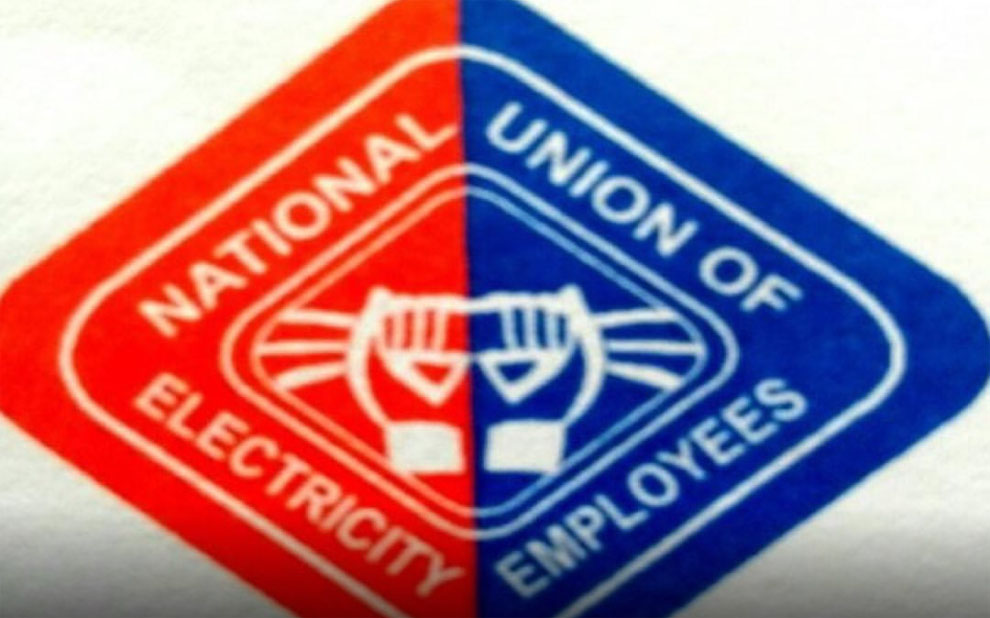
Electricity workers threaten showdown, demand new tariff withdrawal
The National Union of Electricity Employees (NUEE) has asked the federal government to withdrawal the new increase of tariff, saying it will push the price of goods upwards and affect the poor.
Recall that the Nigerian Electricity Regulatory Commission (NERC) had, on April 3, increased electricity tariff for customers enjoying 20 hours of power supply daily, who are said to be under the “Band A” classification.
With the tariff increase, these customers are paying N225 kilowatt per hour from the current N66.
In a letter to the Minister of Power, NUEE described the increase as absurd for a country already facing steep increases in prices of goods and services.
The letter, signed by the union’s acting General Secretary, Dominic Igwebike, said the increase would inadvertently push citizens to purchase foreign products as local products are beyond their reach.
The union said this would force companies that could withstand the low patronage would close down.
While calling for the withdrawal of the new tariff as it is not beneficial to Nigerians, NUEE said the safety of its members was at stake and at the risk of being attacked by people in the community when they visit for disconnections.
It alleged that the minister did not seek the input of stakeholders before the decision was made.
The statement read: “The recent hike in electricity tariff from N68 /kwh to N225 /kwh is absurd in a country where the majority of the masses are grappling with basic survival and an electricity access rate of about 55%.
READ ALSO:
- Police inspector reportedly commits suicide in Borno
- [updated]Twenty arrested over invasion of Oyo Secretariat, House of Assembly – Police
- ‘We have specific targets’, Iran confirms attacking Israel
“The justification given by NERC is that the hike is attributed to only Band A consumers who make up only 15% of electricity consumers and utilize 40% of the nation’s electricity consumption.
“It begs to understand the sensibility of the person(s) that uttered such a statement purporting that it would not affect the general public.
“They need to answer these questions: Who are the Band A consumers? What do they do? Who are the customers of the Band A consumers? Who bears the brunt of the electricity hike? The general public is the one that will be most affected by this.
“They are the customers and end [1] users of the Band A products and services. The additional costs will be transferred to the common man, so they are indirectly being exploited, notwithstanding their dwindling purchasing power and increasing impoverishment.”
“The Honourable Minister of Power and NERC didn’t consult with the stakeholders in the sector before the increase. What of Service Reflective Tariffs as it relates to consumers? We, as a stakeholder, do not know the energy policy of this present administration.
“As a critical stakeholder in the power sector who is concerned with Nigerians getting constant and affordable power supply, we state categorically that the hike in the electricity tariff is not beneficial to Nigerians and should be withdrawn.”
Meanwhile, the electricity generation in the country has nosedived to 2,775 megawatts, MW, yesterday, a 32.3 per cent decline from 4,099.87MW recorded last week.
This was contained in the data released by the Nigeria Electricity System Operator, NESO, a semi-autonomous unit of the Transmission Company of Nigeria, TCN.
Information supplied by the Independent System Operator, ISO, showed that as of 6 pm yesterday, load allocation to the eleven DisCos which stood at 2,775.00 Megawatts gave Abuja Disco the highest allocation at 428MW, followed by Ikeja Electric at 422MW, Eko Disco at 359MW, Ibadan Disco at 335MW, Benin Disco at 227MW and Enugu Disco at 200MW.
The distribution companies with the lowest allocation were Yola Disco at 79MW, Jos Disco at 158MW, Kaduna Disco at 181MW, Kano Disco at 188MW and Port Harcourt Disco at 198MW.
Electricity workers threaten showdown, demand new tariff withdrawal
News
Tinubu Nominates Ismail Abba Yusuf as NAHCON Chairman, Seeks Senate Confirmation

Tinubu Nominates Ismail Abba Yusuf as NAHCON Chairman, Seeks Senate Confirmation
President Bola Ahmed Tinubu has nominated Ambassador Ismail Abba Yusuf as the new Chairman and Chief Executive Officer of the National Hajj Commission of Nigeria (NAHCON), subject to confirmation by the Senate.
The nomination was formally conveyed in a letter addressed to Senate President Godswill Akpabio on Wednesday, in line with Section 3(2) of the NAHCON Act, 2006, which mandates Senate approval before the appointment can take effect. The President urged lawmakers to expedite the confirmation process to ensure stability and continuity at the commission, especially as preparations for the 2026 Hajj exercise gather momentum.
The development follows the resignation of Professor Abdullahi Usman, who stepped down earlier this week after about 14 months in office as NAHCON Chairman. Although official details surrounding his resignation were not fully disclosed, his tenure was marked by efforts to reposition the commission and enhance coordination of Hajj operations for Nigerian pilgrims.
READ ALSO:
- Starvation Cult Preacher Faces Expanded Murder, Terrorism Charges in Kenya
- Lagos Allocates 180 Shops to Displaced Alabarago Market Traders
- Cubana Chief Priest Vows to Oppose Peter Obi in 2027 Presidential Race
His exit comes at a sensitive period when logistical planning, airlift arrangements, accommodation coordination, and pilgrim welfare services for the upcoming Hajj are intensifying. Stakeholders in the Hajj industry have emphasized the importance of swift leadership confirmation to avoid disruptions in preparations.
Ambassador Ismail Abba Yusuf is a seasoned Nigerian career diplomat who served as Nigeria’s Ambassador Extraordinary and Plenipotentiary to Türkiye from 2021 to 2024. During his diplomatic assignment, he played key roles in strengthening bilateral relations and advancing Nigeria’s foreign policy objectives.
If confirmed by the Senate, Yusuf will assume responsibility for overseeing Nigeria’s Hajj and Umrah operations, including the welfare and coordination of thousands of Nigerian pilgrims traveling annually to Saudi Arabia. The National Hajj Commission of Nigeria (NAHCON) is the statutory body responsible for organizing, supervising, and regulating Hajj and Umrah activities for Nigerian Muslims, as well as ensuring their welfare in Saudi Arabia.
The Senate is expected to schedule a confirmation hearing where Ambassador Yusuf will be screened by lawmakers. Upon approval, he will formally assume office as NAHCON Chairman, taking charge of preparations for the 2026 Hajj season.
The nomination is seen as part of broader efforts by the Tinubu administration to strengthen key institutions and ensure effective service delivery in religious affairs management.
Tinubu Nominates Ismail Abba Yusuf as NAHCON Chairman, Seeks Senate Confirmation
News
Lagos Allocates 180 Shops to Displaced Alabarago Market Traders
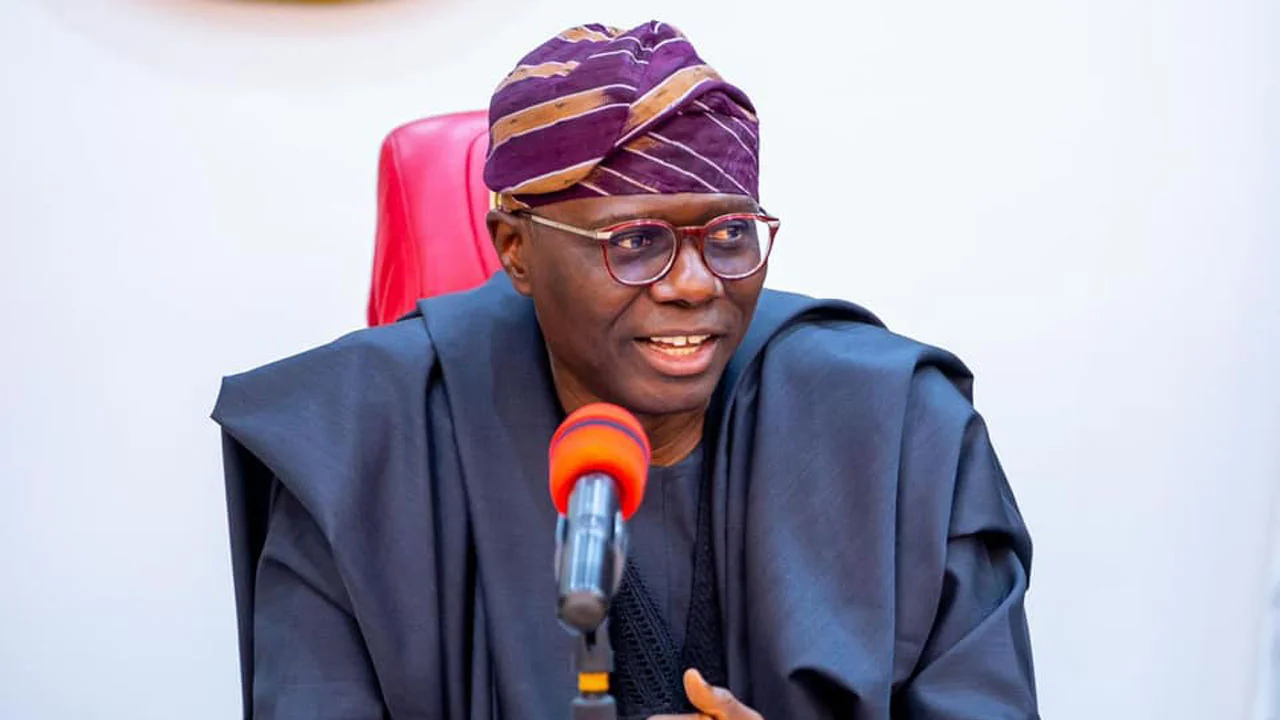
Lagos Allocates 180 Shops to Displaced Alabarago Market Traders
The Lagos State Government on Wednesday officially presented allocation letters to 180 traders affected by the redevelopment of Alabarago Market in Ojo Local Government Area, marking a significant step in the state’s efforts to modernize markets and support small businesses. The ceremony took place at the Lagos State Building Control Agency (LABSCA) office in Ikeja GRA, with Dr. Olajide Babatunde, Special Adviser to the Governor on e-GIS and Urban Renewal, handing over the letters.
Dr. Babatunde explained that former shop occupiers were given first right of refusal and flexible payment options. Beneficiaries can pay 60 percent upfront, with the remaining balance payable over six months, or opt for a 25 percent initial payment if unable to meet the larger installment. He noted that the state collaborated with financial institutions to redevelop the market under Governor Babajide Sanwo-Olu’s THEMES Plus Agenda, which includes the transformation of 21 markets across Lagos, including Katangwa, Pelewura, Jankara, and Alabarago.
READ ALSO:
- Cubana Chief Priest Vows to Oppose Peter Obi in 2027 Presidential Race
- US Lawmakers Introduce Bill to Sanction Kwankwaso, Miyetti Allah
- NAFDAC Clarifies: No Government Directive to Halt Sachet Alcohol Enforcement
The redevelopment has converted Alabarago, the largest cattle market in West Africa, into the modern Alaba Transnational Market, featuring 3,000 shops and 1.2 kilometers of newly constructed roads linking the market to main access routes. Ground-floor shops are priced at ₦13 million each, while upper-floor units cost ₦10 million, both subsidized by the government to ease affordability for traders.
Dr. Babatunde commended the collaborative efforts of agencies and partners supporting the project, including LABSCA, the Urban Renewal Agency, United Bank for Africa (UBA), the Debt Management Office, Ministry of Finance, and the Accountant-General’s office.
Speaking on behalf of beneficiaries, Hussain Lajawa, Chairman of Central Alabarago Market, praised the government for delivering on its promise to develop a market to international standards. He urged the authorities to expedite road construction and access infrastructure to ensure smooth business operations for traders relocating to the new market.
The allocation of shops to displaced traders underscores Lagos State’s commitment to economic empowerment, modern market infrastructure, and business continuity, while cushioning the impact of displacement caused by urban redevelopment projects. The move is expected to revitalize local commerce, particularly in the Ojo area, and strengthen Lagos State’s small and medium-scale enterprise (SME) sector.
Lagos Allocates 180 Shops to Displaced Alabarago Market Traders
News
US Lawmakers Introduce Bill to Sanction Kwankwaso, Miyetti Allah
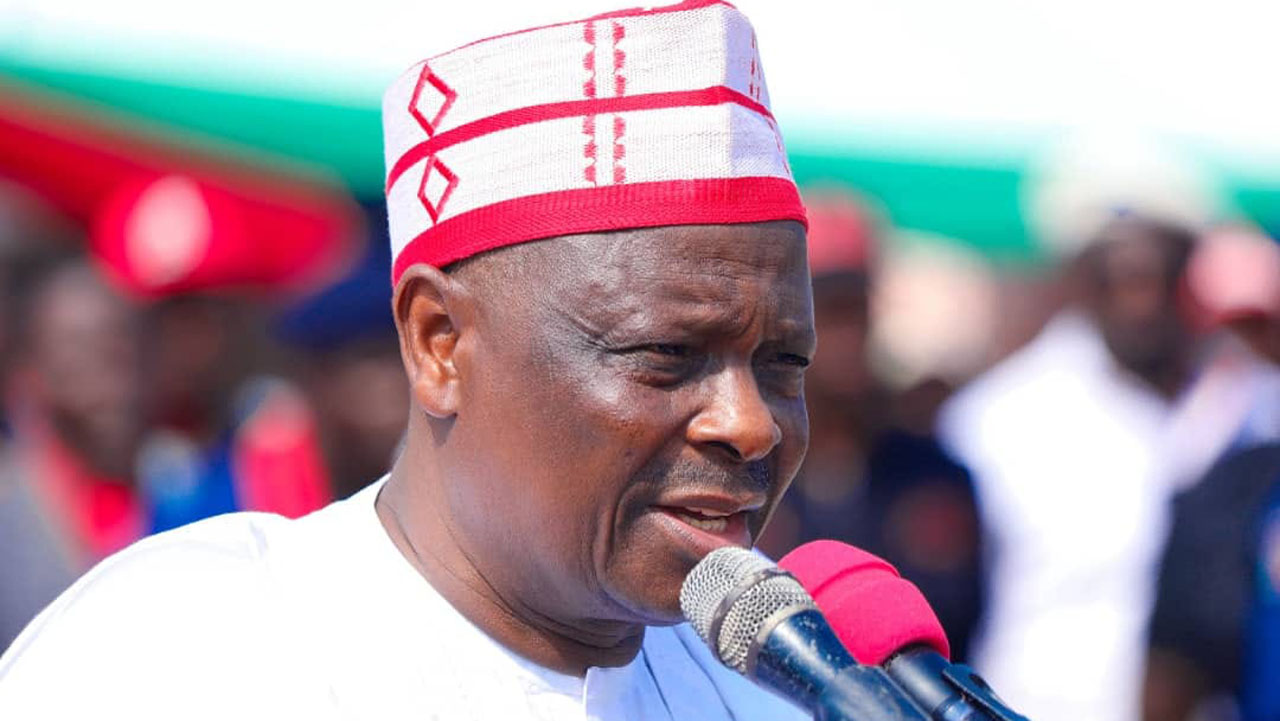
US Lawmakers Introduce Bill to Sanction Kwankwaso, Miyetti Allah
Five United States lawmakers have introduced a bill in the US Congress seeking to impose visa restrictions and asset freezes on former Kano State governor Rabiu Musa Kwankwaso, the Miyetti Allah Cattle Breeders Association of Nigeria (MACBAN), Miyetti Allah Kautal Hore, and other actors over alleged persecution of Christians and severe violations of religious freedom in Nigeria.
The proposed legislation, titled the Nigeria Religious Freedom and Accountability Act of 2026, was sponsored by Representatives Chris Smith, Riley Moore, Brian Mast, Mario Díaz-Balart, and Bill Huizenga. It directs the US Secretary of State to submit periodic reports to Congress assessing Nigeria’s compliance with international religious freedom obligations and the measures taken to protect vulnerable communities, particularly in the Middle Belt states.
Under the bill, the US government could impose targeted sanctions, including Global Magnitsky Human Rights sanctions, asset freezes, and visa bans on individuals or entities responsible for religious persecution. It also allows the Secretary of State to determine whether certain Fulani-ethnic militias qualify as Foreign Terrorist Organisations (FTOs), reflecting growing concern over violence affecting Christian populations.
READ ALSO:
- NAFDAC Clarifies: No Government Directive to Halt Sachet Alcohol Enforcement
- Suspected IED Explosion Rocks Bayelsa Secretariat, Police Arrest Suspect
- Regina Daniels Shares Emotional Message on Children’s Welfare Amid Custody Battle
Lawmakers cited estimates that between 2009 and 2025, between 50,000 and 125,000 Christians were killed in Nigeria, with more than 19,000 churches destroyed. They highlighted recent incidents, including attacks in Yelwata, the Christmas Eve massacres of 2023 and 2024, and Holy Week and Easter attacks of 2024 and 2025, which collectively left thousands dead and displaced over half a million people. According to Open Doors’ 2026 World Watch List, Nigeria accounted for 72 percent of Christians killed worldwide.
The bill also calls for the provision of humanitarian assistance, co-funded by the Nigerian government, through trusted civil society and faith-based organisations. It encourages collaboration with international partners, including France, Hungary, and the United Kingdom, to strengthen religious freedom, peace, and accountability.
Sponsors stressed that the future of US–Nigeria relations would depend on the Nigerian government’s response to these alleged atrocities, asserting that Nigeria could strengthen ties with Washington and play a stabilising role in the Sahel region if it takes concrete steps to protect vulnerable communities and combat religious violence.
The legislation follows prior US actions, including the redesignation of Nigeria as a “Country of Particular Concern” (CPC) under President Donald Trump, aimed at addressing ongoing religious freedom violations and promoting accountability for perpetrators of sectarian violence.
US Lawmakers Introduce Bill to Sanction Kwankwaso, Miyetti Allah
-
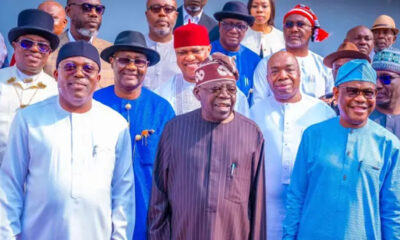
 News2 days ago
News2 days agoBREAKING: Tinubu Holds Reconciliation Meeting With Wike, Fubara, Rivers Leaders at Aso Rock
-

 Business3 days ago
Business3 days agoBoI Gets CBN Approval to Launch Non‑Interest Banking Window in Nigeria
-

 metro2 days ago
metro2 days agoLeadership Crisis at NAHCON as Chairman Abdullahi Saleh Usman Resigns
-

 News2 days ago
News2 days agoUS Judge Orders FBI, DEA to Release Tinubu’s Criminal Records, Faults Delays
-

 News1 day ago
News1 day agoOyo Muslims Reaffirm Loyalty to Sultan on Islamic Matters — Grand Chief Imam
-

 International2 days ago
International2 days agoUS to Deport 18 More Nigerians on ‘Worst-of-the-Worst’ Criminal List (Full Names)
-

 News2 days ago
News2 days agoOWN Calls for Immediate Resignation of INEC Chairman
-

 Business2 days ago
Business2 days agoNaira Posts Strong Comeback, Breaking Two‑Year High Against Dollar





